Beyond core subjects
Our commitment to early childhood development is guided by the Statutory Framework for the Early Years Foundation Stage (EYFS), recognising the profound impact of experiences between birth and age five on a child’s future life chances. Rooted in the belief that every child deserves the best start, we embrace the four guiding principles that shape practice within Early Years settings:
- Every Child is a Unique Child: We acknowledge that children are constantly learning and can be resilient, capable, confident, and self-assured.
- Children Learn to be Strong and Independent Through Positive Relationships: We foster strong partnerships between practitioners, parents, and/or carers, creating an environment where positive relationships thrive.
- Children Learn and Develop Well in Enabling Environments: Our spaces respond to individual needs, providing a secure, safe, and happy childhood.
- Children Develop and Learn in Different Ways and at Different Rates: We recognize and celebrate the diverse learning journeys of each child.
Foundation Stage Curriculum:
In the Early Years Foundation Stage (EYFS), we actively engage with children, playing alongside them to plan next steps in their learning and dynamically advancing their education in the moment. Our planning is guided by the three characteristics of effective teaching and learning:
- Playing and Exploring: Children investigate and experience things, ‘having a go’ in a playful and explorative manner.
- Active Learning: Children concentrate, persevere through difficulties, and relish achievements, fostering an active learning ethos.
- Creating and Thinking Critically: Children develop their own ideas, make connections, and create strategies for problem-solving.
All seven areas of learning and development are interconnected, with particular emphasis on the prime areas:
- Communication and Language
- Physical Development
- Personal, Social and Emotional Development
These prime areas are complemented by the four specific areas:
- Literacy
- Mathematics
- Understanding the World
- Expressive Arts and Design
Our goal is to provide rich, meaningful experiences that ignite children’s curiosity, enthusiasm for learning, and capacity to thrive across all areas. Our teaching approach incorporates a balance between child-initiated activities and planned interventions, ensuring children actively engage and learn in a variety of groupings, including whole class, small group, and individual settings. Phonics is taught using the Sounds Write guidance, promoting effective language acquisition.
Key Stage 1 & 2 Curriculum:
Our KS1 & KS2 curriculum planning follows a 2-year rolling program, allowing children to cover essential knowledge and skills over a 2-year period, irrespective of their actual year group. This approach, based on a rolling program, encourages collaborative planning across our schools, leveraging shared interests, experiences, and talents effectively. The rolling program for the academic years is detailed in our organisational plan.
Teachers meticulously plan activities that deliver knowledge in motivating and inspiring ways, emphasising cross-curricular links to contextualize learning. This approach ensures a dynamic learning experience that captures the interest and imagination of our learners.
